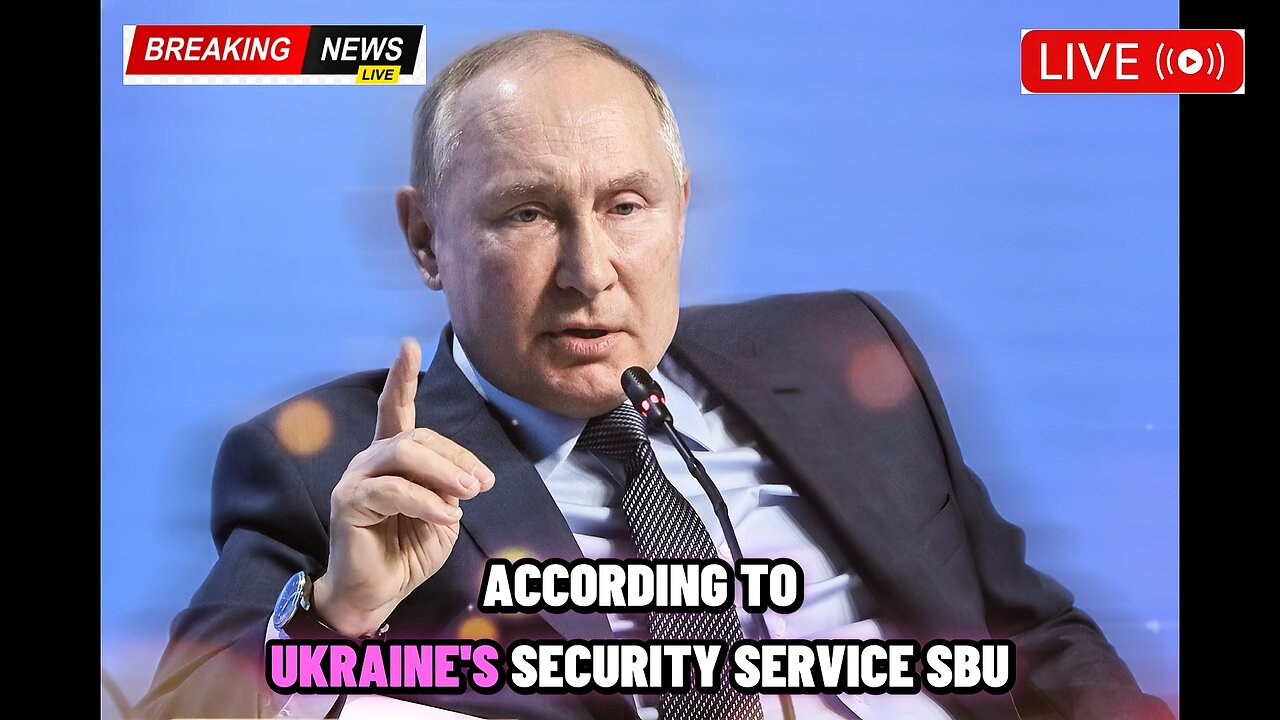Premium Only Content

Russia slows down on the front line because Ukraine continuously attacks economic pillars?
Is Russia’s Slow Progress on the Frontline Linked to Ukraine’s Strikes on Its Economic Pillars?
Ukraine has repeatedly targeted Russia’s energy infrastructure, a vital pillar of Moscow’s economy, in an effort to undermine the resources sustaining Russia’s war effort. On September 18, long-range Ukrainian drones struck a major oil refinery inside Russia, causing damage and fires. This marked the latest in a series of operations against the Russian energy sector, which provides the financial backbone for Moscow’s military campaign in Ukraine.
Revenue from oil exports remains a lifeline for the Kremlin, directly funding the war. By striking energy facilities, Kyiv aims not only to cut into these revenues but also to disrupt Russia’s ability to maintain supply chains critical for its armed forces.
According to Ukraine’s Security Service (SBU), the refinery targeted on September 18 belonged to Gazprom Naftohim Salavat, located in Bashkortostan, southern Russia, near the Kazakh border. The site, situated roughly 1,300 kilometers from the Ukrainian frontline, is one of the country’s largest refining and petrochemical complexes. An unnamed intelligence source told Business Insider that the strike ignited a fire and caused notable damage. The source emphasized that such attacks are systematically reducing the flow of oil revenues into Russia’s defense budget and directly weakening its combat capabilities.
The source also noted that each successful strike demonstrates to Russia that “no region is truly safe,” highlighting Ukraine’s growing ability to project power deep into Russian territory. Social media videos later showed black smoke billowing over the damaged refinery. Russia’s Ministry of Defense, however, claimed its air defenses shot down 106 Ukrainian drones overnight, without specifying whether any drones managed to hit their intended targets.
In a separate incident, Ukraine’s Special Operations Forces reported striking another oil refinery in Volgograd on September 17, about 500 kilometers from the frontline. Preliminary assessments suggested the facility had to suspend operations. This plant alone processes 15.7 million tons of oil annually, accounting for nearly six percent of Russia’s refining capacity—a significant blow to the sector.
Kyle Glen, an investigator with the UK-based Center for Information Resilience, noted that since early July, Ukraine has conducted 17 attacks against 11 different Russian refineries. These strikes, he said, have already contributed to sharp fuel price increases in several Russian regions. Evidence also points to fuel shortages not only across Russia but also in areas occupied by Moscow’s forces inside Ukraine. Even in Russia’s Far East—far beyond Kyiv’s strike range—supply problems have been reported, reflecting the cascading effects of these operations.
Long-range drone warfare has emerged as a key Ukrainian strategy in what has become a war of attrition. Alongside attacks on refineries, Ukraine has used drones and missiles to strike Russian airbases, weapons factories, and ammunition depots. Military analyst Colonel Markus Reisner of Austria previously argued that the continuous deployment of new drones helps Ukraine compensate for its manpower shortages, turning drones into a “nightmare” for the Russian military. He described the war as a textbook case of asymmetric conflict: a smaller, more innovative force using technology to offset the numerical and resource advantages of a larger adversary.
Meanwhile, Russia has also intensified its own strikes, particularly against Ukraine’s energy infrastructure. By launching large-scale missile and drone attacks, Moscow seeks to exhaust Ukraine’s air defense capabilities while simultaneously crippling the country’s energy grid.
Ukraine’s campaign against Russian refineries, however, underscores Kyiv’s determination to hit Moscow not only on the battlefield but also in its economic lifelines—an approach designed to slow Russia’s advances on the frontlines
-
 1:18:05
1:18:05
Jeff Ahern
1 hour agoThe Saturday Show with Jeff Ahern
3.06K2 -
 LIVE
LIVE
Spartan
1 hour agoFirst time playing Black Myth Wukong
138 watching -
 1:24:47
1:24:47
iCkEdMeL
2 hours ago $5.19 earnedFrom Music to Murder? D4VD’s Tesla Horror Story
15.5K6 -
 LIVE
LIVE
TwinGatz
2 hours ago🔴LIVE - Strike Out Saturday | CS2 | Counter-Strike 2 | New Subs = Case Opening
21 watching -
 LIVE
LIVE
Simulation and Exploration
4 hours agoHow well does this play on a controller? Future console players check this out!
93 watching -
 LIVE
LIVE
MrR4ger
7 hours agoTHE THREE SPLOOGES (THE RECKONING) - ACTIVE MATTER w/ AKAGUMO & TONYGAMING
23 watching -
 1:25:04
1:25:04
Michael Franzese
5 hours agoJames Comey, Epstein Files Block, Tylenol | Michael Franzese Live
185K65 -
 1:24:44
1:24:44
Winston Marshall
10 hours agoThe Hamas Hoax That Fooled The West...
19.2K22 -
 5:11:39
5:11:39
Grant Cardone
5 hours agoReal Estate Live Training
18.5K -
 22:53
22:53
Jasmin Laine
1 day agoParliament ERUPTS After "WORST Decision EVER!"—Carney Left SPEECHLESS by SHOCKING Report
20K35